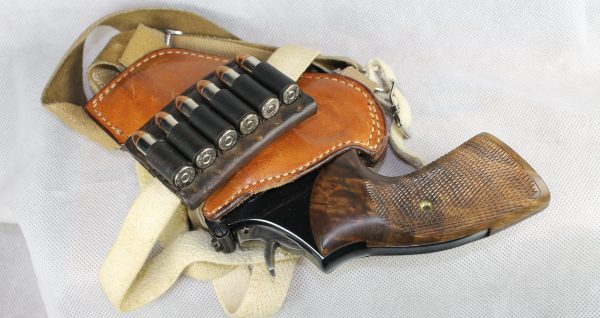
A federal judge in Camden, N.J. has granted a temporary restraining order against enforcement of the state’s new gun law in a case brought by several gun rights groups including the Second Amendment Foundation.
SAF is joined in the case by the Firearms Policy Coalition, the Coalition of New Jersey Firearm Owners, the New Jersey Second Amendment Society, and three private citizens. They are represented by attorney David Jensen of Beacon, NY.
In her 60-page opinion issued Monday, U.S. District Judge Renee Marie Bumb wrote, “The State may regulate conduct squarely protected by the Second Amendment only if supported by a historical tradition of firearm regulation. Here, Plaintiffs have shown that Defendants will not be able to demonstrate a history of firearm regulation to support any of the challenged provisions. The deprivation of Plaintiffs’ Second Amendment rights, as the holders of valid permits from the State to conceal carry handguns, constitutes irreparable injury, and neither the State nor the public has an interest in enforcing unconstitutional laws.”
“This is another example of the important precedent found in language in the U.S. Supreme Court’s Bruen ruling last June,” said SAF founder and Executive Vice President Alan M. Gottlieb. “Clearly, New Jersey lawmakers have gone too far in crafting a law to get around the high court’s decision.”
“We are pleased that Judge Bumb recognizes the plaintiffs’ probability of success in challenging a law restricting the right to bear arms in public that has no basis in this country’s history or tradition.,” SAF Executive Director Adam Kraut concurred.
Judge Bumb admonished the state for attempting to delay a ruling with occasionally bristling language.
“Defendants press this Court to refrain from acting urgently and to afford them more time to set forth the legal justifications for the legislation,” the judge observed. “As State Defendants argue, a ‘hasty injunction would short-circuit the democratic process while the litigation process is underway.’ This Court concurs, in that no injunction should ever be hastily issued, but Defendants must do more than promise they will justify the constitutional basis for its legislation later.
“Surely, Defendants had—or should have had—the historical materials and analyses the State relied upon when it began its legislative response to Bruen,” Judge Bumb continued. “After all, the Supreme Court was clear that in order for any gun control legislation to pass constitutional muster under the Second Amendment, such legislation must be consistent with historical tradition. The State has had six months since Bruen to identify well-established and representative historical analogues…In fact, Chapter 131 expressly states that the ‘sensitive-place prohibitions on dangerous weapons set forth in this act are rooted in history and tradition . . . analogous to historical laws that can be found from the Founding era to Reconstruction, which are also found in modern laws in many states.’
“That Defendants dedicate a significant portion of their argument discussing the benefits of the firearms regulations and not evidence of historical analogues is quite telling,” Judge Bumb wrote. “And although Defendants represent that the ‘State will offer ample evidence that Chapter 131 is constitutional,’ they do not adequately explain why—if such evidence was critical to the passage of the legislation that would pass constitutional muster post-Bruen and available to the Legislature as set forth in Section 1(g) of the statute—they have not introduced such evidence here. Certainly, Defendants anticipated challenges to the legislation and should have been better prepared to defend the legislation’s constitutionality. Plaintiffs implore this Court to consider the only reasonable conclusion from Defendants’ posturing: their dragging of feet is evidence that no such historical tradition and evidence exists.”